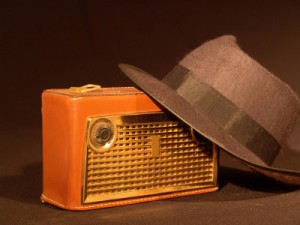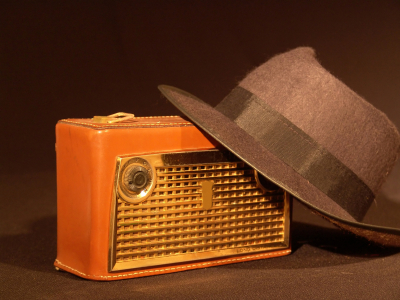Crying In Your Beer Is Just a Waste of Good Beer
 I’m a huge fan of country music. In small doses, that is. One of the great things about country music is how it speaks to the heart, about real human emotions.
I’m a huge fan of country music. In small doses, that is. One of the great things about country music is how it speaks to the heart, about real human emotions.
Then again—after a certain point, dwelling on those emotions can turn toxic on you. It’s easy to get addicted to crying in your beer and there are plenty of country songs to feed the addiction.
Dwight Yoakam, for my money, has got the top spot of this genre nailed down. Here’s verse 1 and chorus from Lonesome Roads:
Where did I go wrong
You know I haven’t got a clue;
I must’ve just been born no good–
Bad’s the best that I can do.
Lonesome roads, the only kind I ever traveled,
Lonesome rooms, the only place I’ve ever stayed.
I’m just a face out in a crowd that’s turnin’ ugly—
Poor ol’ worthless me’s the only friend I ever had.
There is something comforting about a beautiful song that articulates your own melancholy. Early Bob Dylan could do that for me (think Sad Eyed Lady of the Lowlands, or better yet, Visions of Johanna). Come to think of it, the words don’t even have to make sense; they just have to mirror your deep melancholy.
But then there’s life. The sun comes up the next morning and the dishes are still in the sink, the car’s engine light is still blinking, and your secret inamorata at work still doesn’t appreciate the ennobling of your soul that can only come from crying in your beer alone with Dwight or Bob. All you’ve done is waste some good beer.
The trouble with emotions is they attract the same. You empower what you fear; you attract what you put out. Beer-crying is the ultimate in high self-orientation; it’s a trust-killer. Why would anyone trust someone whose aim is to amplify his feelings of misery?
Five Steps to Stop Crying in Your Beer
You don’t need me to tell you it’s a stupid waste of time. As David Maister wrote in his book Strategy and the Fat Smoker, the issue is not one of diagnosis, but of implementation. What can you do to get out of the funk? Here are five steps.
1. It may sound obvious, but it belongs #1 on the list: give Yoakam and Dylan a rest. Go listen to something a bit more extroverted. Pretty much anything will do. Though may I suggest Robert Randolph and the Family Band?
2. If you’re hungry, get something to eat. (Unless, that is, you’ve got eating issues. In which case, do not revert to beer).
3. If you’re tired, go take a nap.
4. Get outdoors, preferably in the daytime. Get some exercise. Go volunteer to walk dogs at the local animal shelter.
5. Go meet some other human beings. (Preferably not in a bar. Though if bar is unavoidable, look for pop, rock or jazz on the jukebox).
And if you can’t manage that, then give my regards to Dwight. I miss the guy from time to time.




Nice Blonde on Blonde references, Charlie (aside from the melancholy inducement)!
I once read an interview where a bluesman was asked about playing “downer” music. He said, “It’s not a downer. It’s like an immunization. You take a dose of the illness in order to build a tolerance.”
I think it can work that way as long as it’s not melodramatic like those Dwight lines.
I hear statements like these coming from a lot of magical thinking proponents: fans of ‘The Secret’, Napoleon Hill, etc.
And it worries me.
A) There’s a creepy undercurrent of potential for victim blaming the way I often see that ‘logic’ applied. “You were defrauded by the bank which has now foreclosed on your home and your family is living in the street? Ah, well, you empowered that. You must have attracted it by your negative thinking.” (I’m not saying that this is what you meant by the statement, Charlie, only that this is often how I see it interpreted.)
B) I’d far get off my arse and try to do something about your situation (as you advocate later in the article) than “think positively” and wait for external forces to make changes happen.
On the other hand, the power of positive thinking to cure cancer has finally been debunked. I wonder if there’s any chance that means that logic and reason are on the upswing.
I assume that if you support this idea you have good, reliable sources for it. Are there any studies that show that “You empower what you fear; you attract what you put out”?
Your list of recommendations is great: attend to the bottom of Maslow’s Hierarchy so you can work your way back towards the top.
I’d also suggest three refinements for step five:
Don’t seek out just any old human beings. If the company you choose is also crying in their own (real or metaphorical) beer, you’ll wind up reinforcing everything you want to change. In the same vein as the idea of dressing for the job you want, not the job you have, try to spend time with people who represent who and how you want to be, not where you’re currently at.
Reciprocate the favour to those people as soon as you possibly can. We’ve all had emotional vampires in our lives: people who surface when they have a problem of their own, suck you dry, and then disappear. It’s a good way to wind up despised and friendless. Don’t do it.
Get off your ‘S’. If you are fixated on yourself and your problems, fixating on yourself more will have a limited success as a solution. Take a low self-orientation approach instead: think about, and help, someone other than yourself. Rather than just seek out other people so that they can cheer you up (a one-way exchange), do something useful and helpful, for someone else, in a situation that isn’t about you. (The solution lies in the fact that you’re letting go of your self.)
It’s lovely to see you posting again. I hope your holidays went well, and that your schedule on the road right now isn’t too arduous. Happy New Year.
(PS Now that you have your new comment form, I’ve tried some fairly amibtious html in formatting this post. It would be wonderful if your comments had a ‘preview’ feature before posting, so commenters could proof and correct errors. I’m about to hit submit, and I hope this doesn’t come out looking like a dog’s breakfast.)
I’ve got one! I’ve got one!
I could have had a lot more Happy New Years
If I hadn’t cried so much in so many beers.
Looking forward to Trust Matters in 2011!
Lance, I see a new future career for you! Though you may want to hold on to your day job just a bit…
Mike, that’s exactly how I see it, actually (at least up to a point). The metaphor I like is with homeopathy–a tincture of what ails you acts like a vaccine. And actually the Dylan material, like the Blues, works that way for me. I like.
Shaula, I could not agree more with you about the abuse of the “thinking/action” link. I think the Secret is the very height of stupidity. And you’re right, people too easily interpret things like “you empower what you fear” in exactly the way you point out.
In http://trustedadvisor.com/trustmatters/american-secret in
February 2007 I wrote about exactly how this stupidity arises. It is an abuse of logic.
It is one thing to say that your thinking can influence results. That I find quite common, e.g. if I’m crying in my beer, I’m not likely to attract positive, self-fulfilled people.
But The Secret and other nutballs go one step further: they assert, in addition to “your thinking can influence results”;
-if results change, it’s because someone thought something
-if you don’t think right, nothing will change
-if nothing changes, it’s because you didn’t think right.
Many people think all four of this beliefs; that’s what you call a closed system.
We’re both talking about people who believe in spoon-bending and in willing parking places to show up and who believe positive thinking will win a lottery. Hint: if you want to win a lottery, you’ve got to buy one helluva bunch of lottery tickets; thinking it won’t help.
This is the same simple logic mistake that we hear from winners of things like American Idol: “If you just hold true to your beliefs, you’ll win.” No you won’t. Those who won held to their beliefs in themselves–but not everyone who holds those beliefs will win. In fact, the vast majority of people who believe they can will their way to winning are self-deluded fools who are wasting their lives not facing up to reality.
I completely agree with you; that sort of belief in magic is the source of a whole lot of self-indulgent fantasy. I hope you’ll join me in distinguishing magic-think from the very simple sense in which our attitudes have an effect on others’ moods, hence in an indirect way, on the results which tend to come our way.
Nice Blonde on Blonde references, Charlie (aside from the melancholy inducement)!
I once read an interview where a bluesman was asked about playing “downer” music. He said, “It’s not a downer. It’s like an immunization. You take a dose of the illness in order to build a tolerance.”
I think it can work that way as long as it’s not melodramatic like those Dwight lines.
I absolutely will join you, Charlie. Thank you for the expansion. (And that is what I thought you meant, but I really do appreciate you spelling it out.)
PS Most of my fancy-dancy html didn’t make it through the publishing process. I learned the HR and OL tags get cut, but BLOCKQUOTE tags make it through, FYI.
I hear statements like these coming from a lot of magical thinking proponents: fans of ‘The Secret’, Napoleon Hill, etc.
And it worries me.
A) There’s a creepy undercurrent of potential for victim blaming the way I often see that ‘logic’ applied. “You were defrauded by the bank which has now foreclosed on your home and your family is living in the street? Ah, well, you empowered that. You must have attracted it by your negative thinking.” (I’m not saying that this is what you meant by the statement, Charlie, only that this is often how I see it interpreted.)
B) I’d far get off my arse and try to do something about your situation (as you advocate later in the article) than “think positively” and wait for external forces to make changes happen.
On the other hand, the power of positive thinking to cure cancer has finally been debunked. I wonder if there’s any chance that means that logic and reason are on the upswing.
I assume that if you support this idea you have good, reliable sources for it. Are there any studies that show that “You empower what you fear; you attract what you put out”?
Your list of recommendations is great: attend to the bottom of Maslow’s Hierarchy so you can work your way back towards the top.
I’d also suggest three refinements for step five:
Don’t seek out just any old human beings. If the company you choose is also crying in their own (real or metaphorical) beer, you’ll wind up reinforcing everything you want to change. In the same vein as the idea of dressing for the job you want, not the job you have, try to spend time with people who represent who and how you want to be, not where you’re currently at.
Reciprocate the favour to those people as soon as you possibly can. We’ve all had emotional vampires in our lives: people who surface when they have a problem of their own, suck you dry, and then disappear. It’s a good way to wind up despised and friendless. Don’t do it.
Get off your ‘S’. If you are fixated on yourself and your problems, fixating on yourself more will have a limited success as a solution. Take a low self-orientation approach instead: think about, and help, someone other than yourself. Rather than just seek out other people so that they can cheer you up (a one-way exchange), do something useful and helpful, for someone else, in a situation that isn’t about you. (The solution lies in the fact that you’re letting go of your self.)
It’s lovely to see you posting again. I hope your holidays went well, and that your schedule on the road right now isn’t too arduous. Happy New Year.
(PS Now that you have your new comment form, I’ve tried some fairly amibtious html in formatting this post. It would be wonderful if your comments had a ‘preview’ feature before posting, so commenters could proof and correct errors. I’m about to hit submit, and I hope this doesn’t come out looking like a dog’s breakfast.)
Lance, I see a new future career for you! Though you may want to hold on to your day job just a bit…
Mike, that’s exactly how I see it, actually (at least up to a point). The metaphor I like is with homeopathy–a tincture of what ails you acts like a vaccine. And actually the Dylan material, like the Blues, works that way for me. I like.
Shaula, I could not agree more with you about the abuse of the “thinking/action” link. I think the Secret is the very height of stupidity. And you’re right, people too easily interpret things like “you empower what you fear” in exactly the way you point out.
In http://trustedadvisor.com/trustmatters/american-secret in
February 2007 I wrote about exactly how this stupidity arises. It is an abuse of logic.
It is one thing to say that your thinking can influence results. That I find quite common, e.g. if I’m crying in my beer, I’m not likely to attract positive, self-fulfilled people.
But The Secret and other nutballs go one step further: they assert, in addition to “your thinking can influence results”;
-if results change, it’s because someone thought something
-if you don’t think right, nothing will change
-if nothing changes, it’s because you didn’t think right.
Many people think all four of this beliefs; that’s what you call a closed system.
We’re both talking about people who believe in spoon-bending and in willing parking places to show up and who believe positive thinking will win a lottery. Hint: if you want to win a lottery, you’ve got to buy one helluva bunch of lottery tickets; thinking it won’t help.
This is the same simple logic mistake that we hear from winners of things like American Idol: “If you just hold true to your beliefs, you’ll win.” No you won’t. Those who won held to their beliefs in themselves–but not everyone who holds those beliefs will win. In fact, the vast majority of people who believe they can will their way to winning are self-deluded fools who are wasting their lives not facing up to reality.
I completely agree with you; that sort of belief in magic is the source of a whole lot of self-indulgent fantasy. I hope you’ll join me in distinguishing magic-think from the very simple sense in which our attitudes have an effect on others’ moods, hence in an indirect way, on the results which tend to come our way.
I absolutely will join you, Charlie. Thank you for the expansion. (And that is what I thought you meant, but I really do appreciate you spelling it out.)
PS Most of my fancy-dancy html didn’t make it through the publishing process. I learned the HR and OL tags get cut, but BLOCKQUOTE tags make it through, FYI.
Interesting post and comments. My perspective.
Victim consciousness is alive and well as is it’s resultant corollary – blaming. Many folks who are mired in the quicksand of victim consciousness are in a reactive mode, i.e., fight, flight or freeze. As such, their limbic brain is operating so for these folks any suggestion to “think positive” or the like falls on deaf ears as their neo-cortex brain – the rational, thinking, logical, executive – function of their brain is basically on “pause.” They hear and read the nice positive epithets, but they are emotionally, psychologically and spiritually paralyzed and as such cannot act, except to literally or figuratively cry in, and drink, their beer.
On the spiitual level, yes, folks who think wondeful thoughts of success, and the like (your Idol example) do fail but in the larger context of our soul’s growth, there is a message in the failure – if – we are conscious enough to reflect on the experience. Victims are not that conscious.
As for thinking positive, I find it curious that knowing that every polarity has two ends, why so many think they can live their life on the positive (happiness, etc) end alone and not have to encounter the other end on their life’s journey.
I, personally, wouldn’t characterize them as self-deluded fools. On a spiritual level, they are fifth-graders who are struggling to learn their lessons and pass the test so they can graduate to the spiritual grade six. We’re, all of us, in the same school, classmates, and none of us has graduated – no one. We all have our respective lessons to learn and respective tests to pass.
“Where did I go wrong
You know I haven’t got a clue;
I must’ve just been born no good–
Bad’s the best that I can do.”
This is a great place to reflect on one’s journey…if one can move beyond the victimization and blame. That’s the choice. Soberly reflect on one’s experience, or cry in one’s beer because of it.
Happy New Year.
Interesting post and comments. My perspective.
Victim consciousness is alive and well as is it’s resultant corollary – blaming. Many folks who are mired in the quicksand of victim consciousness are in a reactive mode, i.e., fight, flight or freeze. As such, their limbic brain is operating so for these folks any suggestion to “think positive” or the like falls on deaf ears as their neo-cortex brain – the rational, thinking, logical, executive – function of their brain is basically on “pause.” They hear and read the nice positive epithets, but they are emotionally, psychologically and spiritually paralyzed and as such cannot act, except to literally or figuratively cry in, and drink, their beer.
On the spiitual level, yes, folks who think wondeful thoughts of success, and the like (your Idol example) do fail but in the larger context of our soul’s growth, there is a message in the failure – if – we are conscious enough to reflect on the experience. Victims are not that conscious.
As for thinking positive, I find it curious that knowing that every polarity has two ends, why so many think they can live their life on the positive (happiness, etc) end alone and not have to encounter the other end on their life’s journey.
I, personally, wouldn’t characterize them as self-deluded fools. On a spiritual level, they are fifth-graders who are struggling to learn their lessons and pass the test so they can graduate to the spiritual grade six. We’re, all of us, in the same school, classmates, and none of us has graduated – no one. We all have our respective lessons to learn and respective tests to pass.
“Where did I go wrong
You know I haven’t got a clue;
I must’ve just been born no good–
Bad’s the best that I can do.”
This is a great place to reflect on one’s journey…if one can move beyond the victimization and blame. That’s the choice. Soberly reflect on one’s experience, or cry in one’s beer because of it.
Happy New Year.
I’ve got one! I’ve got one!
I could have had a lot more Happy New Years
If I hadn’t cried so much in so many beers.
Looking forward to Trust Matters in 2011!